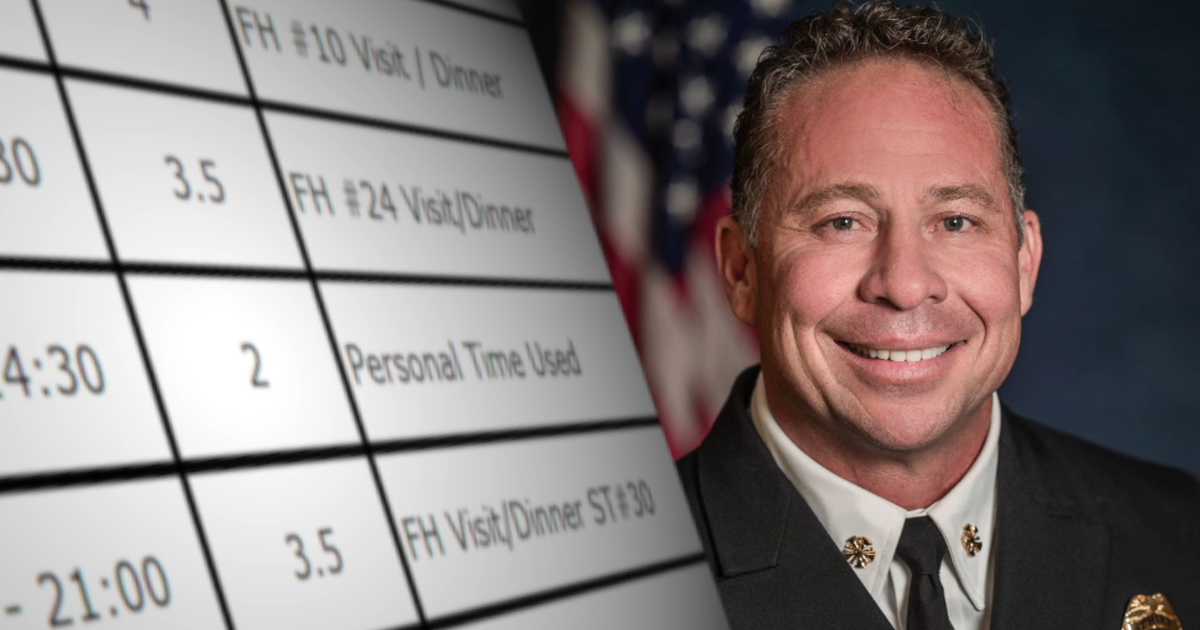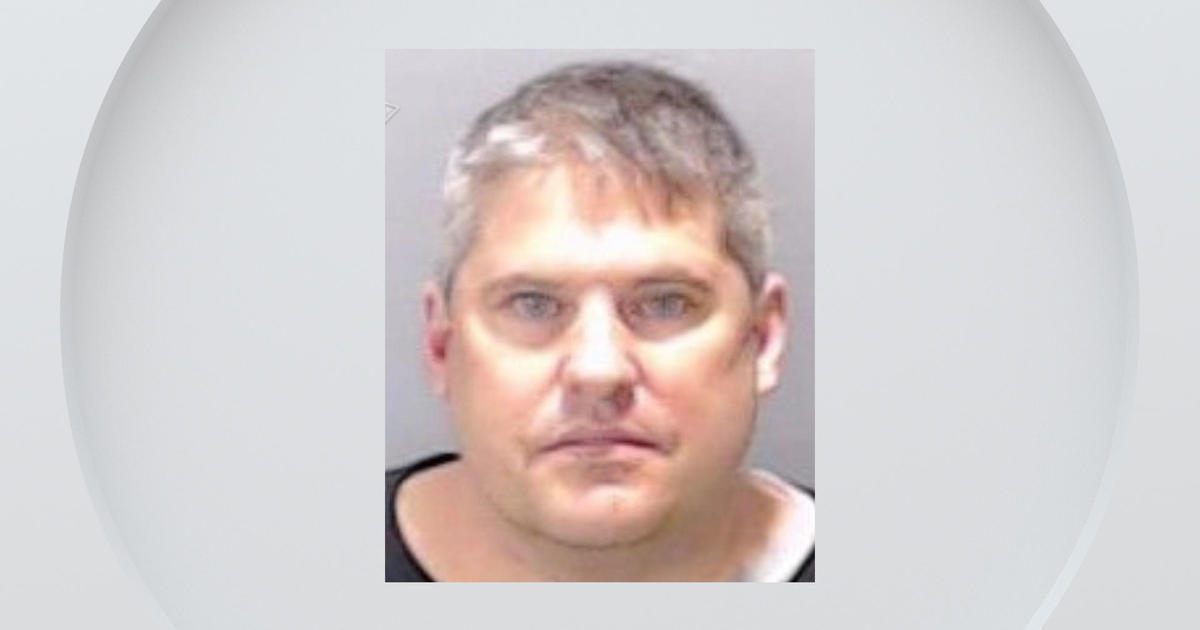Colorado Elections Chief Doesn't Mind Hot Water
DENVER (AP) - Colorado's lightning-rod elections chief, Scott Gessler, smiles when asked if he's surprised how often he ruffles feathers. The Republican secretary of state doesn't seem to mind the question.
In office less than a year, Gessler has become a political villain for Colorado's left, and a folk hero for the right. He's raised eyebrows - even in the halls of Congress - for his efforts to root out voter fraud and to rewrite what he considers confusing campaign finance guidelines.
Opponents say Gessler has darker motivations: Suppressing votes and making it easier for big-money political interests to influence elections.
Gessler shrugs off his critics, but readily acknowledges that he wants to reshape Colorado election law.
"I came in with a lot of ideas on how things could be done better," said Gessler, a lawyer who represented right-leaning political groups before he defeated a Democratic incumbent in 2010.
Gessler quickly proposed big changes. He backed legislation to require Colorado residents to prove citizenship before they register to vote and to require registered voters to show photo IDs before casting ballots.
Both ideas were rejected by Democrats in the Legislature who argued there is scant evidence of voter impersonation, and that the changes could suppress voting among ethnic minorities and elderly people.
The secretary also combed Colorado records to check the names of licensed drivers who said they weren't citizens against voter-registration lists. Gessler argued there could be thousands of noncitizens wrongly eligible to vote, and he proposed going to those folks and asking for proof of citizenship.
Gessler insists the suggestion was rejected by lawmakers because it would upset the status quo.
"This is like the crazy aunt up in the closet nobody wants to talk about," he said of the possibility of noncitizen voters.
Gessler's willingness to shake up Colorado politics is a departure from previous secretaries of state. But he fits in with colleagues elsewhere. Nationwide, there's a new wave of elections officers with a distinct partisan bent.
Larry Norden, deputy director of the Democracy Project at the Brennan Center for Justice at New York University School of Law, said the change started after the contested 2000 presidential election. The famous Florida recount prompted a new awareness of how election rules can determine winners. A decade later, little-known secretaries of state and state elections board members are on front pages.
"Whereas in the past, secretaries ran on promises of saving money or running elections smoothly, now they run on issues like, 'I'm going to keep fraud out of the polling place,'" Norden said. "If that's how they're running, it really isn't a surprise that that's what they pursue when they're elected."
In 2006, progressives launched a political group called the Secretary of State Project to get Democrats elected to the office. In 2010, conservatives joined suit, knocking off Democratic incumbents in Kansas and New Mexico, as well as Colorado. Like Gessler, other successful Republicans campaigned on promises to root out voter fraud, especially by noncitizens.
"One thing about Scott Gessler is, you know what you're going to get," said Jenny Rose Flanagan, director of voting and elections for Common Cause, a good-government advocacy group that frequently opposes Gessler's ideas. "He's very much an activist."
The secretary's perceived activism for his political party and his former clients has gotten him into trouble.
Soon after taking office, Gessler said he'd continue working for his law firm - even though he was elected to police the firm's activist clients. After withering criticism even from his own party, Gessler abandoned the idea. He now says he's teaching part-time at law schools to supplement his $68,500 salary.
In September, Gessler headlined a fundraiser to pay off a campaign finance fine for Republicans in Larimer County - a fine that his own office levied. That raised more conflict-of-interest concerns.
Democrats cried foul again in October, when Gessler sued the city of Denver for mailing ballots for its municipal election to all eligible voters, not just active voters as required by law. No law bans mailing ballots to all eligible voters.
Gessler's lawsuit failed, but it prompted two Democratic members of Congress - neither of them from Colorado - to request a U.S. Department of Justice review into what they called possible attempted vote suppression by Gessler.
There's been no word on a federal investigation, and Gessler says he plans to appeal the Denver ruling in the interest of having a statewide standard for mail-in balloting.
Gessler also envisions sweeping changes to campaign finance rules. He wants to cap fines for certain campaign-finance penalties and increase the amount of money certain political committees can raise before having to report their donors to the state.
Gessler calls his proposed changes, up for a public hearing Dec. 15, an overdue simplification to make it easier for non-lawyers to get involved in politics. Others say Gessler is overstepping his legal authority.
"I don't think the office has that much power," said Luis Toro, head of Colorado Ethics Watch, a left-leaning nonprofit watchdog group. "I think of that office as a minute ministerial position, kind of like a county clerk. But he obviously thinks his office has vast rulemaking authority to change Colorado election law, something the rest of us might call legislating."
Gessler insists he's not trying to circumvent lawmakers, though he concedes he hasn't had much luck at the Capitol across the street from his office. Gessler says he won't revive some of his voting-security ideas next session because of a likely lack of Democratic support.
Despite the setbacks, Gessler doesn't consider his first year a failure.
"We've really changed the terms of debate in a lot of these areas, to where people are beginning to articulate and at least look at some of the problems we have," Gessler said.
Many Republicans agree.
"When it comes to ballot security issues, he's at the forefront," said Rep. Ken Summers of Lakewood, who sponsored a failed bill last session to require photo ID at the polls. Summers says he'll push the measure again next session.
"Gessler is proposing pragmatic and common-sense policies," he said.
Looking ahead to next year, Gessler predicted fewer fireworks because he doesn't plan to try again to argue for proof of citizenship to register to vote.
"There won't be much that's controversial," he predicted. Then he shook his head and quickly backtracked: "Well, it's me, so it'll be controversial."
By KRISTEN WYATT, Associated Press
(© Copyright 2011 The Associated Press. All Rights Reserved. This material may not be published, broadcast, rewritten or redistributed.)



